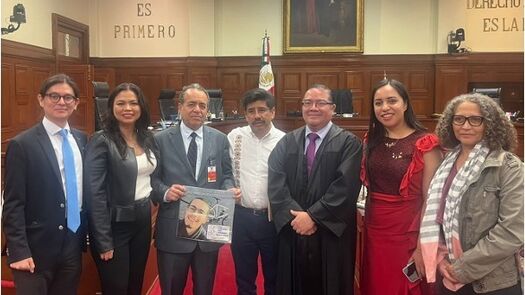December 19, 2025

In 2019, the Global Health Advocacy Incubator (GHAI) began work with civil society advocates in Colombia to raise awareness on the need to improve vehicle safety standards to protect lives on the roads. For a vehicle to be safer, basic elements including anti-lock brakes, electronic stability control and standardized anchorages for child car seats must be included, yet experts concluded that Colombia’s standards lagged Europe’s by twenty years.
A survey and a series of focus groups, supported by GHAI, revealed that Colombian citizens did not know that most of the new cars sold in the market failed to meet the minimum safety standards recommended by the United Nations. The surveyed drivers ranked vehicle safety standards 7th in importance when purchasing a new car, behind features like an upgraded entertainment system and a larger trunk. The survey results demonstrated a need to build consumer knowledge around vehicle safety to reduce the risk to all drivers and citizens for injury and death, especially to vulnerable road users such as pedestrians and cyclists.
Making An Invisible Public Health Issue Matter: Carros Más Seguros Mass Media Campaign
Local civil society organizations such as Despacio (in 2020) and La Liga Contra la Violencia Vial (in 2021) launched mass media campaigns titled Carros Más Seguros, (Safer Cars Campaign) aimed at informing drivers in Colombia on the urgent need to improve vehicle safety to save lives. They utilized road safety data on injuries and fatalities to produce impactful media content to engage the public and shift public opinion and behavioral change in support of vehicle safety. Data also included the results of car crash tests conducted by the Latin America and Caribbean New Car Assessment Programme, which demonstrated the poor safety conditions of cars sold in Colombia. La Liga went one step further, analyzing official crash statistics to highlight the relationship between specific car models that performed poorly in crash tests and resulted in fatalities on the roads.
The Carros Más Seguros campaign proved successful in reach and impact. The campaign reached 34 million people, representing 68 percent of Colombia’s entire population. Further, a post-media campaign survey demonstrated that vehicle safety became the top criterion among drivers after the campaign ended.
Advocacy Efforts to Improve Regulations
Simultaneously, during the mass media campaign, civil society organizations, funded by the Global Road Safety Partnership and supported by GHAI, initiated a dedicated advocacy campaign to improve the regulatory framework, which would make it mandatory for the automotive industry to comply with the minimum vehicle safety regulations recommended by the United Nations. Local advocates, including Despacio, Universidad Javeriana and Dejusticia brought public awareness to this issue by disseminating evidence-based on human rights perspective, and cost-benefit analyses that highlighted the sound economics and public health benefits behind safer vehicles. They also engaged policymakers in the Executive branch and lawmakers to push for stronger vehicle safety standards.
Colombia’s Adhesion Bill to the 1958 Agreement, a First in Latin America
In February 2023, Congress approved the Adhesion Bill to the 1958 United Nations Agreement, creating the legal framework for raising vehicle safety standards. The approval of this Bill puts Colombia on a firm path toward requiring United Nations standards for all vehicles sold in the market. The priority now is for local civil society to demand that the government implement vehicle safety standards and require the automobile industry to have vehicles evaluated by trusted third parties.
Fortunately, a law passed in 2022, known as Ley Julián Esteban, obligates the Ministry of Transport to draft an implementation plan for the United Nations standards within a maximum period of three years. GHAI supported this policy win with earned and paid media efforts that underpinned the advocacy efforts.
Interference from the automotive industry to avoid compliance and delay deadlines is expected. GHAI will continue to work closely with Colombia’s vehicle safety advocates to sustain this policy victory by providing technical assistance to civil society making sure that the highest possible vehicle safety standards are fully implemented in the coming years—and that lives are saved.





